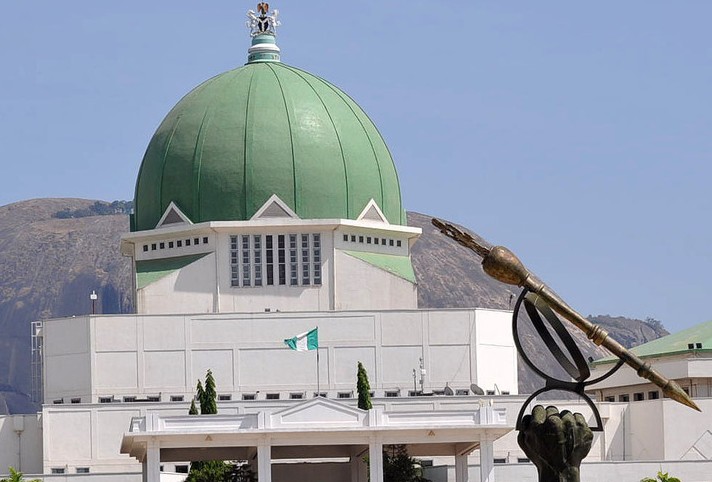[ad_1]
Udora Orizu writes that the Senate and House of Representatives last week re-amended the Electoral Act to allow the president, governors, lawmakers and others vote in conventions or meetings of political parties
The National Assembly last week amended the Electoral Act, 2022, to allow ‘statutory delegates’ all those elected to participate and vote in the conventions, congresses or meetings of political parties. There has always been an attempt after or before every election to amend the Act to take care of deficiencies noticed during the elections.
The Electoral Act provides for the structure of the Independent National Electoral Commission (INEC), its powers and guidelines for registering voters, procedures for the conduct of elections, the registration, deregistration and regulation of political parties and the determination of election offences.
Since Nigeria returned to civilian rule in 1999, the first Electoral Act which was passed in 2001, was revised in 2002, 2006 and 2010. The 2006 Act empowered INEC to appoint its Secretary, undertake voter education and prosecute offenders.
The 2010 Electoral Act streamlined the powers of INEC to regulate political parties especially the process of nominating through party primaries; new ceilings for campaign expenditures; empowers INEC to deregister political parties based on the basis of conditions provided in the law and announcement and posting of election results at polling stations among other provisions.
The recent amendment made to the Act by lawmakers in the 9th National Assembly, after several corrections was finally signed into law on February 25, 2022, by President Muhammadu Buhari.
In the bill, the federal lawmakers added direct, indirect and consensus primaries as means of selecting candidates. They also introduced another provision in which it proposed that all political appointees seeking to contest elective offices should resign long before declaring their interest.
With election primaries few days away, the lawmakers again amended the Act, to allow statutory delegates which include the president, governors, National Aassembly members, state assembly members, local government chairman, councilors National Working Committee of political parties, amongst others, vote in the conventions, congresses or meetings of political parties.
The decision at the Senate followed the expeditious consideration of a bill during plenary which scaled first, second and third readings, respectively, and was passed during plenary by the chamber after consideration by the Committee of the Whole.
The bill to amend the 2022 Electoral Act No. 13 was sponsored by the Deputy Senate President, Ovie Omo-Agege (Delta Central). Omo-Agege, in his presentation, said the bill seeks to amend the provision of section 84(8) of the Electoral Act.
According to him, the provisions of the section “does not provide for the participation of what is generally known as ‘statutory delegates’ in the conventions, congresses or meetings of political parties.”
“The extant section only clearly provides for the participation of elected delegates in the conventions, congresses or meetings of political parties held to nominate candidates of political parties.
This is an unintended error, and we can only correct it with this amendment now before us,” the Deputy Senate President said.
Speaking after the Bill was passed, the Senate President, Ahmad Lawan, in his remarks, said the amendment became imperative in view of the deficiency created by the provision of section 84(8) of the extant Act.
He said: “The amended Electoral Act of 2022 that we passed this year, has a deficiency that was never intended and that deficiency will deny all statutory delegates in all political parties from participation in congresses and conventions. And, therefore, such a major and unintended clause has to be amended before the party primaries starts in the next eight days. This is an emergency legislation, so to speak.
“Our expectation is that the National Assembly – the two chambers – would finish with the processing of this amendment of this bill, between today (in the Senate) and tomorrow (in the House of Representatives), and then the Executive will do the assent. That is so important to enable every statutory delegate to participate in the party primaries right from the beginning that will start on the 18th of May, 2022.
Just like the Senate, the House of Representatives, the next day concurred and amended same section of the Act.
The amendment was sequel to the consideration of a Bill titled: “A Bill for an Act to amend the Electoral Act No 13, 2022; and for Related Matters (HB. 1984) sponsored by the Chairman, Committee on Rules and Business, Hon Abubakar Hassan Fulata at an emergency plenary called exclusively for the purpose of passing the bill into law.
The bill was given accelerated passage as it was introduced, read for the second, considered at the committee of the whole, later read for the third time and passed into law at the session presided over by the Deputy Speaker, Hon. Ahmed Idris Wase.
The provision in the Principal Act reads, “A political party that adopts the system of indirect primaries for the choice of its candidate shall clearly outline in its constitution and rule the procedure for the democratic election of delegates to vote at the convention, congress or meeting.
Section 84 of the Principal Act was amended by deleting subsection (8) and inserting a new subsection (8) as follows: “A political party that adopts the system of indirect primaries for the choice of its candidates shall clearly outline in its constitution and rules the procedure for the democratic election of delegates to vote at the convention, congress or meeting, in addition to statutory delegates already prescribed in the Constitution of the party.”
Will the President Sign the
Re-amended Bill?
There are concerns on whether President Muhammadu Buhari will sign the bill into law following what happened to the previous electoral bill where the lawmakers reached an agreement with the President that they would amend section 84(12) of the legislation and the lawmakers reneged.
Before the president assented to the Bill on February 25, he was said to have reached an agreement with both the Senate and the House of Representatives for the lawmakers to expunge the controversial Section 84(12) in the Act which deprived federal appointees their constitutional rights to vote and be voted for ahead of primary elections of political parties.
The lawmakers for the first time, since the return of democratic rule in 1999, went against agreement reached with a sitting president by throwing out Buhari’s request.
The National Assembly not living up to its own commitment to the President, the last time they reached an agreement on this matter, which has led to legal tussle between the two arms of government, may play a role in Buhari’s decision on whether to sign the bill into law or not.
Also, there are concerns on the purpose of the rushed amendment, given that the President constitutionally has 30 days to either sign or withhold assent, and by then all the party primaries would have been done.
[ad_2]
Source link











